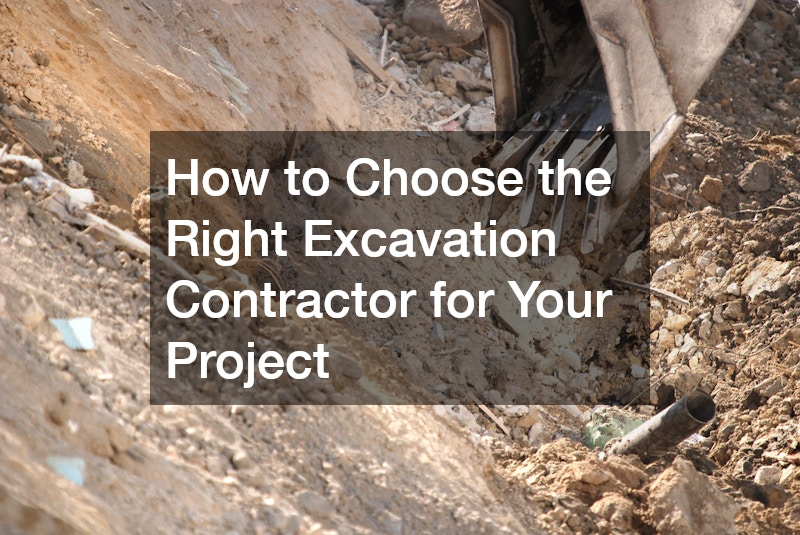
Choosing the right excavation contractor is critical to the success of any construction project. The contractor's expertise, reliability, and ability to adhere to timelines and budgets can significantly influence the project outcome. In this article, we guide you through the key considerations in selecting an excavation contractor that best fits your project needs.
Video Source
Evaluating the experience and expertise of an excavation contractor involves assessing their track record in handling similar projects. An experienced contractor will often have a portfolio of completed projects of varying sizes and complexities, demonstrating their ability to tackle challenges and deliver results. It is advisable to request references and possibly visit past project sites to observe the quality of work firsthand.
Furthermore, an excavation contractor's expertise can be witnessed in their approach to problem-solving and innovative techniques. Contractors with specialized skills and training in specific excavation types bring added value, ensuring precise and efficient work. Additionally, checking for any industry certifications or affiliations can serve as an indicator of a contractor’s commitment to maintaining high standards and staying updated with industry practices.
When assessing a contractor's credentials, one of the first steps is to verify their licensing and certification status. A valid license indicates that the contractor has passed necessary examinations and complies with local regulations and standards. Moreover, certifications from recognized industry bodies enhance a contractor’s credibility and showcase their commitment to the craft.
Reputation is another crucial factor, often reflected in client reviews and ratings on multiple platforms. A contractor consistently praised for reliability, professionalism, and quality workmanship is likely to deliver satisfactory results. Conversely, recurring negative feedback might point to potential red flags, necessitating further investigation or reconsideration.
Proper insurance is vital for protecting all parties involved in a construction project. An excavation contractor should have comprehensive liability and workers’ compensation insurance to cover any accidents, property damage, or injuries that may occur during the project. Without these safeguards, you could be held financially and legally responsible for any mishaps that take place on your site.
Safety measures are equally important, as they are an indicator of the contractor's commitment to maintaining a safe work environment. Enquire about their safety protocols, training programs, and the frequency of safety audits. A contractor with a strong safety record reduces the risk of delays and complications, ensuring a smooth project execution.
Comparing excavation contractor bids involves more than just looking at the cost. It’s crucial to examine each bid comprehensively, considering factors like project timelines, scope of work, and detailed cost breakdowns. Ensure each proposal is clear on the specifics, including equipment and material use, as well as estimated labor costs.
A well-detailed bid provides transparency and allows for accurate comparison. Look for any exclusions or assumptions that might affect final costs. Differences in pricing should be justified by those specifics, so asking for clarifications during the bid evaluation phase avoids future misunderstandings.
Lastly, consider the contractor's responsiveness and willingness to negotiate or discuss adjustments. A contractor who is open to refining their proposal can be valuable, as they demonstrate flexibility and a customer-centric approach. Combining these practices ensures a well-informed decision, aligning with budget and project requirements.
Assessing compatibility starts with a clear understanding of your project’s specific requirements and constraints. Create a detailed project plan and checklist that outlines essential capabilities needed from a contractor. This preparation helps in determining whether prospective contractors have the necessary resources, skills, and tools to meet your demands.
Discussing project goals and preferred outcomes with potential contractors can further illuminate their understanding and willingness to adapt to your vision. Their approach to tailoring solutions and addressing challenges specific to your project is a good indicator of compatibility.
Finding the right excavation contractor requires careful evaluation of key factors such as experience, reputation, insurance, and project compatibility. By taking the time to thoroughly vet potential contractors, you can ensure that your project is completed efficiently, safely, and within budget, ultimately achieving your desired outcomes.
.